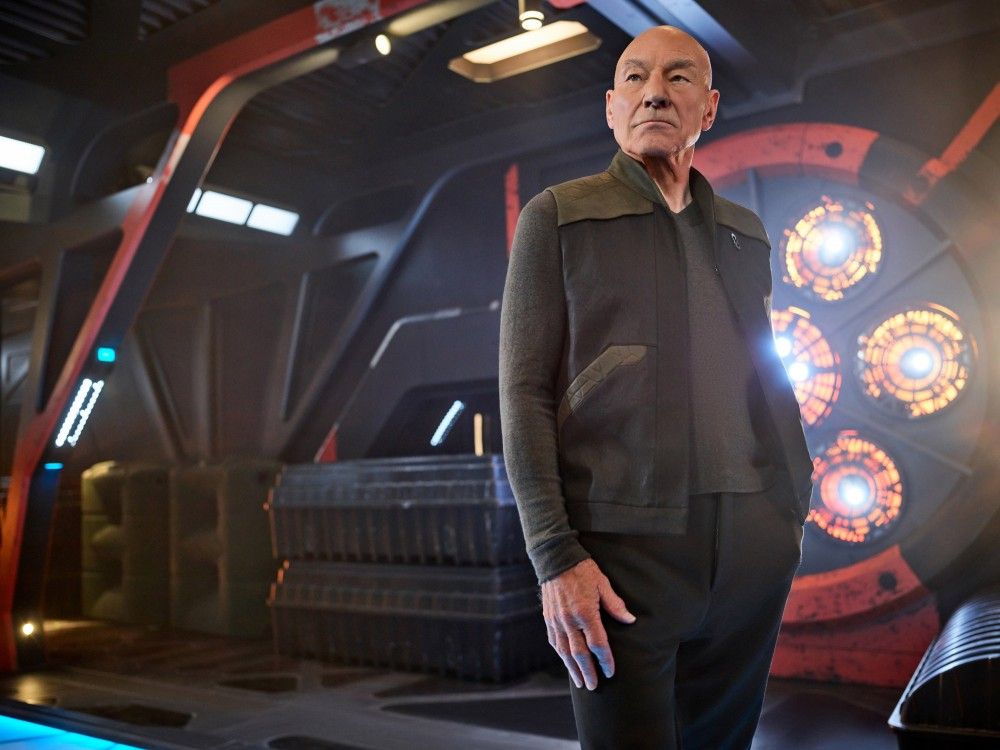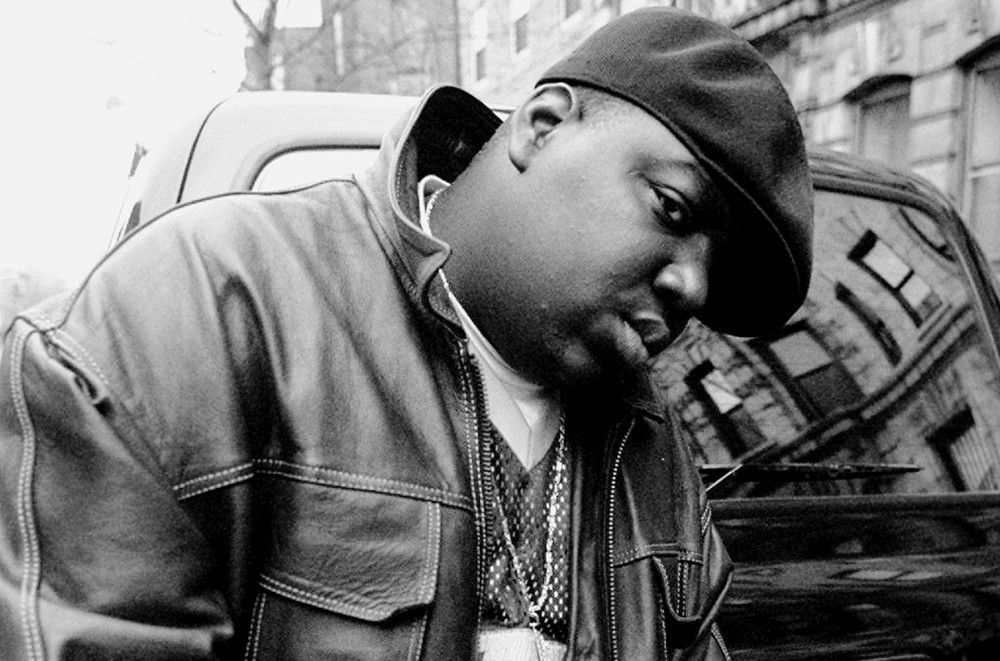
'Star Trek: Picard' Review: The Great Beyond
“Engage.”
This was the simple command that Captain Jean-Luc Picard uttered so often throughout the seven-season run of Star Trek: The Next Generation — the final word before the starship Enterprise headed off on a new adventure. But engage is also what so many recent TV revivals fail to do. They don’t connect with the old material in any meaningful way so much as they strain to recreate it exactly as it was. They’re brand management more than they are storytelling — unapologetic bids for attention in an overcrowded TV landscape, little more.
Even Star Trek: Discovery, while a franchise extension rather than a revival, suffered from this problem when it debuted a couple years back as the shiny lure for the new CBS All Access streaming service. Set a few years before the events of the original series(*), it boasted a strong cast and impressive production values, but didn’t seem to have a reason for existing beyond the theory that Trekkies would subscribe to All Access for new content. The second season improved a bit, mainly just by introducing its own take on characters from the Sixties series, like Spock and Christopher Pike.
(*) This proved to be a mistake resulting from the show’s convoluted development process. Discovery was originally the brainchild of Hannibal‘s Bryan Fuller, and reports suggest he wanted it to be a seasonal anthology series like Fargo and American Horror Story, each season set in a different Trek era with a different cast. His bosses’ lack of interest in such an approach is one of the reasons Fuller left the project early on, but they kept the setting and characters he’d helped develop, which left Discovery stranded at a point in the franchise’s timeline where the creative team is very limited by what they can do. The second season ended with the ship traveling into the future for good — not quite Fuller’s original idea, but close enough.
Now along comes , which on paper leans even more heavily on Trek nostalgia than Discovery ever has. As the title suggests, it brings back Sir as Jean-Luc, now a 92-year-old Starfleet retiree living on the family vineyard in France. He is haunted by dreams of his late, great, android-with-a-heart operations officer Commander Data (Brent Spiner), which tie into the new adventure the series sends him on. Early episodes are sprinkled with nods to Next Generation and several Star Trek films (even one of the Chris Pine movies, which largely take place in an alternate timeline), and we are promised eventual appearances by some other familiar faces from the Eighties and Nineties.
But despite the cameos and Easter eggs, Picard never feels like nostalgia for its own sake. The creative team — including Pulitzer Prize-winning novelist Michael Chabon, Alex Kurtzman, Akiva Goldsman, and Kirsten Beyer— have clearly given a lot of thought to the idea of an elderly Picard. What would he be doing?(*) How would he feel about being away from Starfleet? What might inspire him to go off on one more mission? There is a clear purpose to revisiting the character at this advanced age, and to the story he gets tangled up in, which includes a young scientist (Isa Briones) having bad dreams of her own, a robotics expert (Alison Pill) who knows a lot about Data, an ex-Starfleet officer (Michelle Hurd) bitter about how her career and Picard’s ended, and a mercenary ship captain (Santiago Cabrera) who helps answer the question, “What if Han Solo had a snippy, disapproving holographic twin?”
(*) “All Good Things,” the Next Generation series finale, also has sequences where Picard is an old man on the vineyard. Picard acknowledges certain key details from that episode, but because Data was alive in its future, then killed off in the Star Trek: Nemesis film, the new show’s not entirely beholden to how the old one ended.
Just as importantly, there is the leading man. With all due respect to Shatner, Nimoy, Brooks, Auberjenois, Mulgrew, Bakula, et. al., Stewart is far and away the best actor to be a Star Trek regular. He made the dire first two seasons of Next Generation watchable through his sheer presence, and when the writing improved, his work took the series to another level. (Deep Space Nine is the most consistently good modern Trek series, but Stewart gave Next Generation the highest ceiling.) He has never treated this job like a paycheck, but he seems particularly energized by the challenge of returning to this role at this moment in both his life and Picard’s. This isn’t the Jean-Luc who went toe-to-toe with omnipotent beings, Klingons, Romulans, and the Borg. This is a man with no ship, no crew (other than a pair of wonderfully snarky Romulan servants, played by Orla Brady and Jamie McShane), no purpose. He is emotionally broken about the way his career ended, and though he finds some comfort in walking the fields with his pit bull terrier (named, of course, Number One), he seems to be trying to just run out the clock until this new story begins.
Picard here is more than a decade older than Stewart. Even when you factor in the state of 24th-century medical technology, this is not a Picard who’s likely to be flexing his biceps while he hangs from a cable in battle with the Borg Queen. (When he orders his trademark Earl Grey tea now, it’s decaf.) Stewart’s played frail old men before (including in Logan, to which Picard bears a more than passing resemblance), so the physicality he brings to the job isn’t surprising. But there’s something genuinely thrilling in the way we see Picard come back to life as best he can as the plot unfolds.
Stewart’s compelling enough to justify a relatively leisurely pace in the early going. There are a lot of new characters to introduce, and new circumstances for Picard, the Federation, and the Romulans. But it all feels cohesive and confident in a way that Discovery even in its good moments never quite has. (Nor, for that matter, did most of the previous spin-offs in their first seasons.)
Stewart returning to the role would be reason enough to watch, but this is an actual show, rather than a greatest hits collection. By the time this older Picard actually says “Engage” in a scene, it is not in any way pandering, but something Star Trek: Picard and its great star have entirely earned. And it’s a joy to behold.
The Star Trek: Picard premiere is available now on CBS All Access. I’ve seen the first three episodes.



